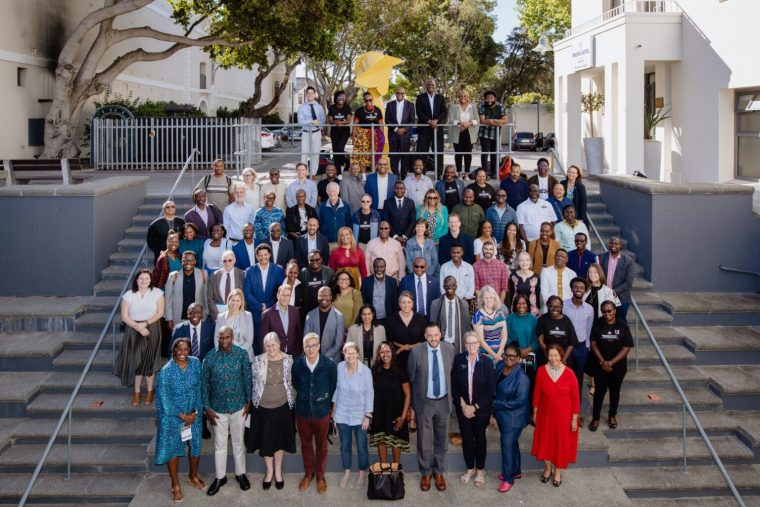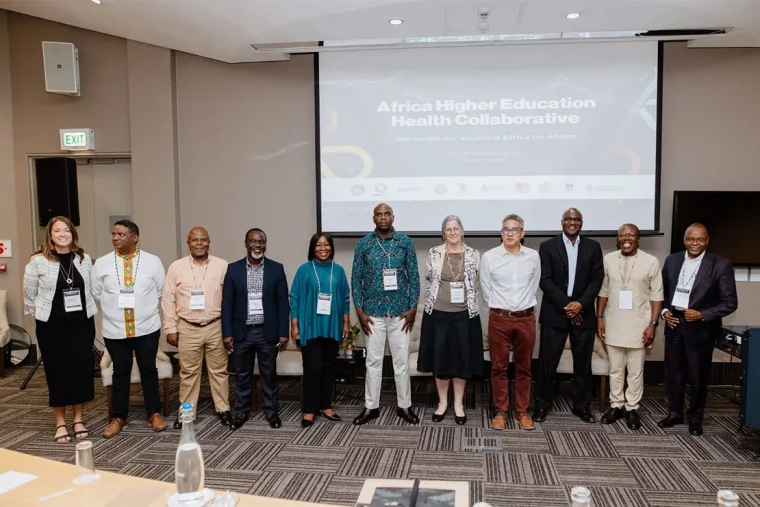The University of Toronto, the Mastercard Foundation and a network of leading African universities are embarking on a 10-year initiative to enhance primary health care workforce education, entrepreneurship and innovation across Africa.
The partnership, known as the Africa Health Collaborative (AHEHC), was launched in 2022 and aims to bolster the continent’s health sectors as part of efforts to improve care for millions while supporting youth employment and economic growth. Participating institutions from Africa include Addis Ababa University, the African Institute for Mathematical Sciences, African Leadership University, Amref International University, Ashesi University, Kwame Nkrumah University of Science and Technology, Moi University and the University of Cape Town.
The AHEHC partners are committed to reshaping the health-care landscape in Africa by preparing young people for meaningful work in health and wellness through contextually appropriate and sustainable primary health care.
According to a 2022 survey of 47 countries in Africa, there’s an average of only 1.55 doctors, nurses, and midwives per 1,000 people, significantly below the WHO’s recommended ratio.
AHEHC was a key topic at a 2023 meeting in Cape Town, South Africa that focused on a collective goal of enhancing the health sector to benefit African societies. The gathering included several U of T leaders: Joseph Wong, vice-president, international; Trevor Young, dean of the Temerty Faculty of Medicine who is now vice-president and provost; and Wisdom Tettey, vice-president and principal of U of T Scarborough. Representatives from all partnering institutions also participated.
“The Africa Health Collaborative is part of a larger movement – driven by Africans for Africans – aimed at enhancing the continent’s economic vitality, improving access to health care and generating fulfilling employment in the health sector,” Wong said.
“The members of this collaborative are working hand-in-hand to advance local priorities and leverage our collective resources to create a healthier, more sustainable future, with each partner contributing to and learning from the others.”
Wong added that AHEHC’s work is guided by the idea of co-creation – an approach that was evident at the October 2023 convening as the partners cemented the mutual relationships, laying the foundation for the widespread adoption of African-led solutions across the network.
U of T’s participation in the AHEHC aligns with the university’s broader Africa strategy, which encompasses various initiatives from entrepreneurship exchanges to high-level summits involving representatives from universities, governments and various international development groups. It is guided by the President’s International Council on Engagement with Africa and is outlined in the university’s International Strategic Plan 2022-2027, focused on global reach, global learning and global impact.
“We aim to tap into the tremendous young talent and vast opportunities across the continent while addressing challenges facing Africa’s primary healthcare systems, including severe worker shortages,” said Penina Lam, U of T’s senior director of international relations, who is leading AHEHC’s implementation.
AHEHC’s initial focus will be in Ethiopia, Ghana, Kenya, Rwanda and South Africa, aiming to strengthen health sectors. Through hands-on training in various disciplines, AHEHC seeks to prepare the next generation of health-care practitioners. The approach aims to enhance the delivery of high-quality primary care, stimulate economic growth and develop robust societies. This aligns with the Mastercard Foundation’s Health Strategy, which seeks to create three million dignified and fulfilling jobs in primary care, with an emphasis on employment opportunities for women and young people.
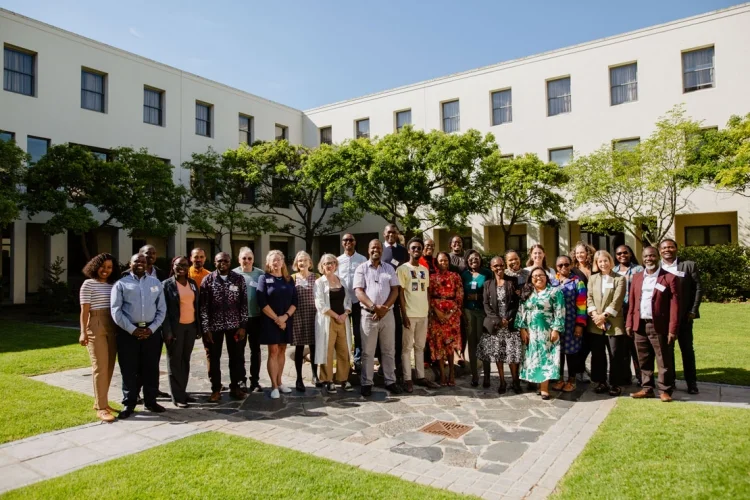
As the secretariat for the initiative, U of T plays a supportive role in co-ordinating collaborations and programs tailored to each partner’s local health priorities, needs, assets and expertise. This involves facilitating learning, development and implementation across the network, managed by a team in Canada and through three regional hubs in Africa.
For example, the Temerty Faculty of Medicine’s department of family and community medicine partnered with the Kwame Nkrumah University of Science and Technology. Together, they co-delivered continuing education courses for primary care workers in critical areas such as palliative care. About 100 Ghanaian primary care professionals participated in the courses this fall.
This program is among many guided by AHEHC’s three pillars: health employment, focusing on workforce development; health entrepreneurship, which supports the creation of businesses that will produce health innovations and self-employment opportunities; and health ecosystems, which engages partners in government, corporations, non-profits and other institutions in the collective effort to transform the health sector.
AHEHC will also build on the success of the Mastercard Foundation Scholars Program, ushering in a new cohort of graduate students from countries in Sub-Saharan Africa to pursue their studies at U of T over ten years.
AHEHC leverages U of T’s longstanding, mutually beneficial relationships with institutions in Africa, such as the Toronto Addis Ababa Academic Collaboration, which brings together U of T faculty members with colleagues at Addis Ababa University to co-develop graduate programs and train professionals, many of whom remain in Ethiopia to contribute to various sectors.
Wong said the initiative is an important one for the university.
“This collaborative aligns with our institutional mission to foster an academic community in which the learning and scholarship of everyone flourishes,” he said. “We are committed to the principles of equal opportunity, equity and justice – not just here in Canada but globally.”
More News & Events
Skip scroller content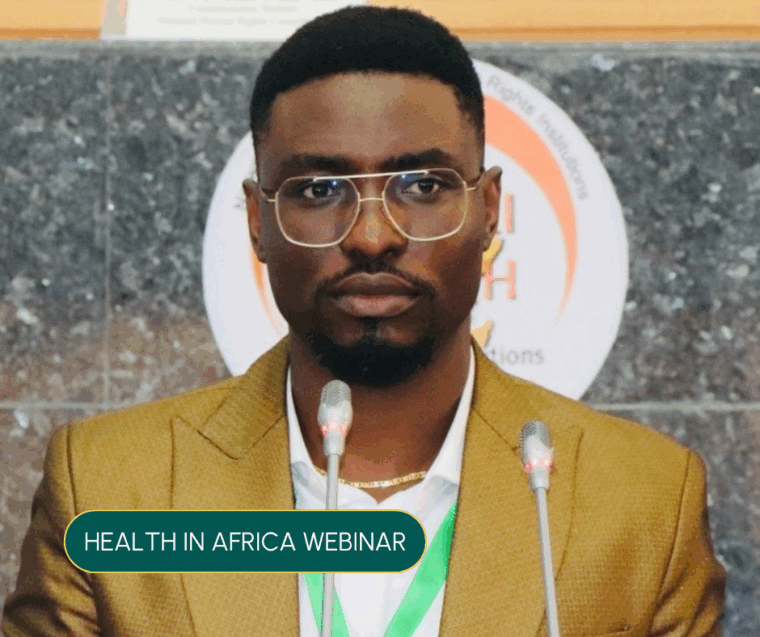
Building Inclusive Health Systems for People in Contact with the Criminal Justice System in Africa
Join this webinar to explore how Africa can build inclusive health systems that protect the dignity, safety, and well‑being of people who come into contact with the criminal justice system.
Dignity, Data, and Disruption in Africa’s Health Systems: A Young Leader’s Reflection
John Nyagaka, a Mastercard Foundation Scholar and AHC Young Leaders Table Chair, reflects on his transformative experience at the 2025 Annual Convening.
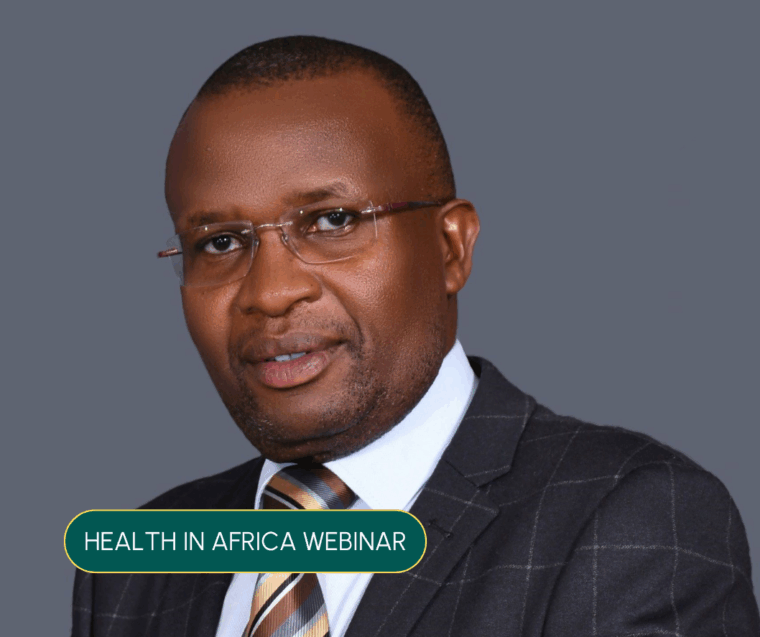
What Works: Improving Maternal and Newborn Health in Kenya and Ethiopia
Join this webinar to explore how community-led systems and digital innovations, in partnership with local leaders, are scaling sustainable healthcare impact and delivering life-saving care for mothers and their newborns.

Apply for the AIMS Master’s in Mathematical Epidemiology (MathEpi) Scholarship
Apply for the 2025 AIMS MathEpi Master’s program. Fully funded scholarships for African students in statistics and public health. Deadline: March 15.

Apply for KNUST’s CPD-Eligible Short Courses in Health Systems and Services Management
Applicants must meet the following requirements to qualify for the scholarship: Short Courses and Timelines 23rd – 27th February 2026: Emergency Preparedness and Response to Epidemic/Pandemic-Prone Diseases 10th – 14th February 2026: Community Emergency Care 24th – 27th February 2026: Palliative Care Module 1 23rd – 27th March 2026: Introduction to Healthcare Quality Improvement (IQI) […]
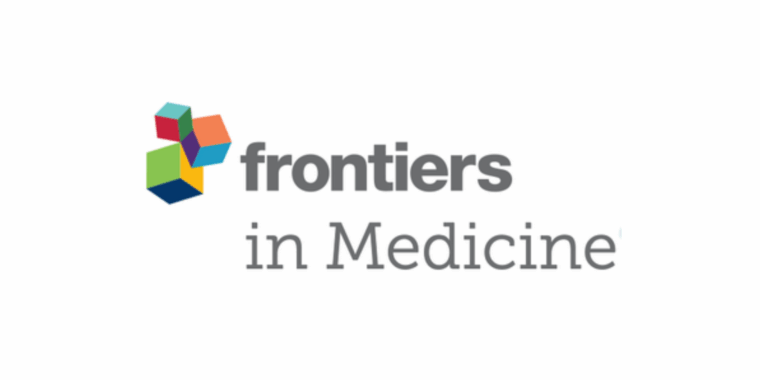
Call for Insights & Stories: Frontiers Opens Special Collection for AHC Partners
The Africa Health Collaborative (AHC) is pleased to share an exciting opportunity for all AHC institutional partners to share original research, reviews, case studies, policy briefs, perspectives, and reflective pieces in a new article collection titled “United in Partnership: Academic Collaborations for Primary Health Care Transformation” by Frontiers in Medicine. This special collection is being […]

A New Chapter of Collaboration: AHC Welcomes Prof. Joachim Osur as Executive Steering Committee Chair
The Africa Health Collaborative (AHC) has announced Prof. Joachim Osur, Vice Chancellor of Amref International University, as the new Chair of the Executive Steering Committee (ESC). The symbolic handover took place during the closing ceremony of the 2025 AHC Convening in Rwanda, held in October 2025. This marks a significant leadership transition from Prof. Nhlanhla […]
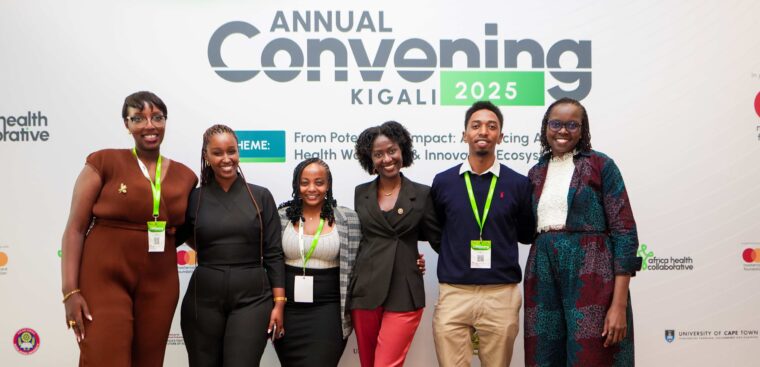
Africa Health Collaborative 2025: Driving Transformative Change in Primary Healthcare Future
Last October, over 170 policymakers, health experts, academics, and youth innovators from 14 countries came together for the Africa Health Collaborative’s (AHC) 2025 Annual Convening, hosted by the African Leadership University (ALU) in Kigali, Rwanda.

Engineering Dignity: Designing Low-Cost Prosthetics in the University of Cape Town’s MedTech Lab
Read about how Jemila Abdulai’s internship at UCT’s MedTech Lab strengthened her commitment to human-centered engineering, demonstrating how affordable innovations like the ADL Arm can expand access, restore dignity, and transform lives in underserved communities.

Graduate Scholarship Opportunities at the Kwame Nkrumah University of Science and Technology
Apply for graduate (MPh, MSc, MPhil, PhD) scholarships at the Kwame Nkrumah University of Science and Technology.
